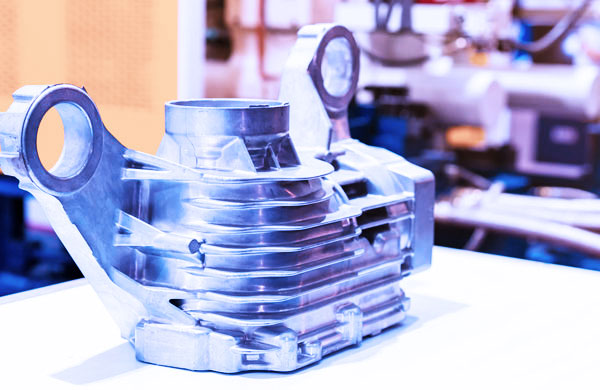Getting The Alcast Company To Work
Getting The Alcast Company To Work
Blog Article
All About Alcast Company
Table of ContentsNot known Facts About Alcast CompanyEverything about Alcast CompanyThe Facts About Alcast Company RevealedThe Ultimate Guide To Alcast CompanyAn Unbiased View of Alcast CompanyAlcast Company - The Facts
Chemical Comparison of Cast Aluminum Alloys Silicon advertises castability by lowering the alloy's melting temperature and improving fluidity during casting. Additionally, silicon contributes to the alloy's toughness and wear resistance, making it important in applications where durability is critical, such as automotive parts and engine components.It also boosts the machinability of the alloy, making it less complicated to process into ended up products. In this method, iron contributes to the overall workability of aluminum alloys.
Manganese adds to the strength of light weight aluminum alloys and enhances workability (Aluminum Castings). It is frequently made use of in wrought light weight aluminum products like sheets, extrusions, and profiles. The visibility of manganese help in the alloy's formability and resistance to fracturing throughout fabrication processes. Magnesium is a light-weight element that supplies toughness and effect resistance to aluminum alloys.
Things about Alcast Company
Zinc boosts the castability of aluminum alloys and aids manage the solidification procedure during spreading. It boosts the alloy's toughness and solidity.

The key thermal conductivity, tensile strength, return stamina, and elongation vary. Select suitable raw products according to the efficiency of the target product generated. Amongst the above alloys, A356 has the highest possible thermal conductivity, and A380 and ADC12 have the most affordable. The tensile restriction is the contrary. A360 has the very best return strength and the highest elongation rate.
All about Alcast Company

In accuracy spreading, 6063 is fit for applications where elaborate geometries and top quality surface finishes are critical. Examples include telecommunication enclosures, where the alloy's exceptional formability permits for smooth and cosmetically pleasing designs while maintaining structural honesty. Similarly, in the Lighting Solutions market, precision-cast 6063 components develop elegant and efficient lighting fixtures that need detailed shapes and great thermal efficiency.
The A360 exhibits remarkable elongation, making it excellent for complex and thin-walled components. In accuracy casting applications, A360 is well-suited for sectors such as Customer Electronic Devices, Telecommunication, and Power Devices.
The 5-Minute Rule for Alcast Company
Its one-of-a-kind residential or commercial properties make A360 a useful option for accuracy spreading in these markets, improving product sturdiness and quality. Foundry. Light weight aluminum alloy 380, or A380, is an extensively made use of spreading alloy with several unique characteristics.
In precision casting, light weight aluminum 413 shines in the Customer Electronics and Power Devices sectors. This alloy's premium corrosion resistance makes it an excellent option for exterior applications, making sure long-lasting, resilient items in the discussed industries.
The Alcast Company Ideas
When you have actually chosen that the aluminum die casting process appropriates for your project, a vital next step is picking the most proper alloy. her explanation The aluminum alloy you pick will considerably influence both the spreading process and the residential or commercial properties of the last product. Since of this, you need to make your decision thoroughly and take an informed strategy.
Figuring out the most appropriate light weight aluminum alloy for your application will suggest evaluating a large range of qualities. The initial category addresses alloy qualities that impact the production process.
Little Known Questions About Alcast Company.
The alloy you select for die spreading straight influences a number of facets of the spreading process, like exactly how very easy the alloy is to work with and if it is prone to casting defects. Hot cracking, also referred to as solidification breaking, is a normal die casting issue for light weight aluminum alloys that can lead to interior or surface-level rips or splits.
Specific light weight aluminum alloys are a lot more at risk to hot splitting than others, and your option should consider this. It can harm both the actors and the die, so you must look for alloys with high anti-soldering properties.
Deterioration resistance, which is already a remarkable quality of light weight aluminum, can vary significantly from alloy to alloy and is a vital particular to consider depending on the environmental conditions your product will be subjected to (aluminum casting manufacturer). Wear resistance is an additional residential or commercial property generally sought in aluminum products and can set apart some alloys
Report this page